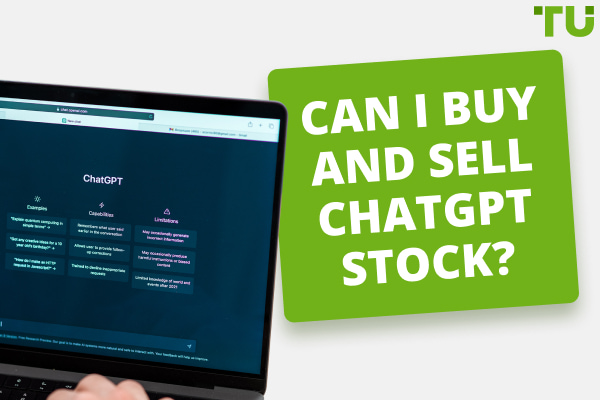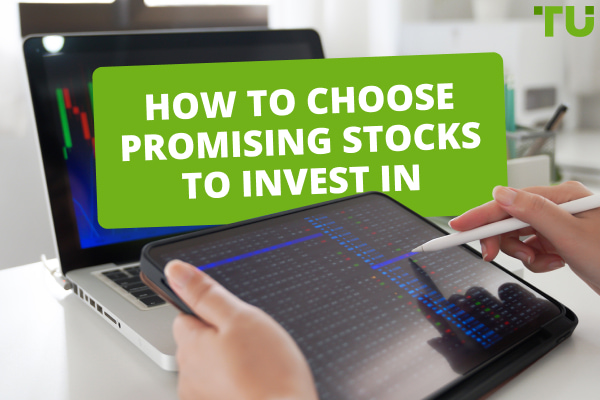Best investment firms in 2024
This article reviews the five best investing companies for investing in stocks, stock options, mutual funds or exchange-traded funds (ETFs), and other financial assets. Finding a good investment company is a key step in building wealth, increasing your net worth, and securing your financial future. Making investments can provide an additional stream of income during an individual’s working years and supplemental income in retirement.
It's possible for individuals to handle and manage all their investments on their own, but the fact is that few people possess much knowledge about, or expertise in, investing. Investing always involves risk, and it’s very easy to end up losing money, rather than making money. Making and managing investments effectively also requires a considerable commitment of time. For all of these reasons, many people opt to use the services of an investment firm to help them with investing.
The best investment firms offer investors significant benefits. A good investment company gives you access to expert financial advice, investment research, and market analysis, and can help you manage risk exposure and plan for your financial future.
The five financial investment companies reviewed here were selected as offering the overall best benefits, based on balancing services provided and fees charged. Each of the five best investment companies reviewed below have their own advantages and disadvantages. Therefore, finding the best investment company really means finding the investment company that looks like the best fit for your individual financial situation and financial goals.
Start investing right now with RoboForex!What is an Investment Company?
An investment company is generally understood to be a financial services firm that offers investors more than a simple brokerage firm that enables investors to buy and sell stocks. Investment companies provide investors with access to investing in a broader range of financial markets, such as commodity futures, options, foreign exchange (Forex), and cryptocurrencies. Most also offer thousands of mutual funds and ETFs, and multiple account types, such as Individual Retirement Accounts (IRAs).
Investment companies also offer professional investment services that include things such as personal financial advisors, investment fund managers, portfolio management services, record keeping of investments, and tax planning assistance.
How to Choose the Best Investment Company
Choosing the best investment company means selecting the investment company that best meets your personal financial needs and wants. For example, perhaps you believe that cryptocurrencies will be a good investment. In that case, you’ll want to find an investment company that offers you the ability to invest in the cryptocurrency market.
Different factors are of varying importance to different investors. However, the following are some of the characteristics that are most commonly desired by investors searching for a good investment company:
-
Exposure to investing in the financial markets and specific financial assets that an investor wants to invest in
-
Offering plenty of investing news, research, and investor education resources
-
Providing a website and investing applications, such as charting programs, that are easy to use
-
Professional financial advice is available in the form of financial advisors, fund managers, or portfolio managers
-
The company offers both short-term and long-term (e.g., retirement planning) investing services
-
Investors can choose from multiple investment strategies and investment vehicles, selecting the one(s) that best fit their personal financial goals and risk tolerance
-
Investing assistance services are offered for a relatively low price
-
A low minimum deposit requirement – this can be especially important for beginning investors who have limited investment capital
Price being the last item on that list doesn’t mean that it’s the least important factor. Just as people look for good prices whenever they’re buying something or paying for services, investors should look for good pricing on investing services. The costs of investing reduce an investor’s net profits. However, an investor may be willing to pay somewhat higher fees in order to obtain additional investing help or to get access to what they consider to be better investment advice than what’s offered by a different investment company that charges lower fees.
Note on investing fees: Here are some general guidelines on investing fees. If you’re investing in mutual funds or ETFs, look for expense ratio fees of 0.25% or less on actively managed funds, and expense ratios of 0.10% for passive index funds. Investors who utilize the services of a robo-advisor, which is an automated portfolio management tool, should be able to get those services for annual fees of 0.30% or less. The services of a personal financial advisor don’t usually cost more than 1% to 2% annually. Nearly all investment companies now offer commission-free trading of stocks and ETFs.
The Five Best Investment Companies
The criteria for selection on this list of the top investing companies took into consideration several factors, including breadth and quality of investment services provided, investing fees, fiduciary stance, reputation, customer service, trading platforms, and investor education resources.
Fidelity
BlackRock
Vanguard
Charles Schwab
Capital Group
Fidelity Investments
Fidelity Investments has steadily polished its reputation with investors year by year, mostly by continuing to expand and improve its services, while reducing investing costs. Fidelity commonly garners five-star ratings from clients for its relatively low investing fees, outstanding market research, and excellent personal service.
Fidelity offers investors a choice of more than 10,000 mutual funds they can invest in that have no transaction fees. Its Fidelity Zero funds require no minimum investment and come with a zero expense ratio.
At Fidelity, there’s an account type available for virtually any investor. The account types primarily vary in terms of what financial assets can be invested in, minimum deposit requirements, and the level of investing assistance provided.
For example, the basic “Fidelity Account” offers investors exposure to thousands of stocks, options, bonds, ETFs, and mutual funds – but doesn’t provide the access to investing in commodities, cryptocurrencies, and Forex that other Fidelity accounts offer. The Fidelity Account comes with limited investment assistance but has very low fees and no minimum deposit. If an investor can make a minimum initial deposit of $25,000, they can opt for the “Fidelity Personalized Planning and Advice” account. That account comes with a robo-advisor portfolio manager and a personal financial advisor to help clients map out their road to wealth.
Fidelity offers several other account options, including all types of IRAs, margin accounts, and wealth management services.
Fidelity appeals to many self-directed investors because of its outstanding investor education resources and financial markets research. Along with a vast collection of articles and videos archived in its online investor learning center, there are weekly investor seminars and investment research and commentary from more than 20 sources. “Fidelity Viewpoints”, Fidelity’s own investment analysis newsletter usually draws rave reviews from clients. Finally, throw in a very user-friendly trading platform and stock screener.
Vanguard
Vanguard is one of the world’s largest investment firms and creators of ETFs and mutual funds. It has clients in more than 150 countries around the globe, and more than $7 trillion in AUM.
Much like BlackRock, Vanguard aims to offer innovative investments and deliver top notch customer service at relatively low prices. As of 2021, the average expense ratio on the many fund investments that Vanguard offers was only 0.09%, well below the industry average of 0.49%.
A unique characteristic of Vanguard is its company structure. Vanguard is owned not by outside shareholders, but by its own mutual funds, that are, in turn, owned by their investors. This cleverly devised corporate structure enables Vanguard to share company profits with its funds’ shareholders by offering lower fees.
Vanguard financial advisors focus on helping investors create and attain reasonable investment goals. To serve that purpose, it offers investors a wide range of investments and investment portfolio strategies. Vanguard also provides extensive investor education resources and tools, with a large library of webinars, podcasts, and articles on personal finance and investing.
Among the many account types offered at Vanguard is a robo-advisor account – the Vanguard Digital Advisor Account. The robo-advisor service only requires a $3,000 minimum investment, and only charges an annual management fee of $2 per every $1,000 invested in the account.
Most of the funds that Vanguard offers require a minimum initial investment of $1,000 or more. Investors have access to stocks, options, funds, bonds, and certificates of deposit (CDs), but Vanguard doesn’t currently offer the ability to invest in commodities or cryptocurrencies.
Charles Schwab
Charles Schwab led the way in offering discount stock trading back in the 1980s, and has maintained a reputation for offering low price financial services.. It’s known primarily as a brokerage firm, but offers many financial services beyond just stock and option trading. Investors can take advantage of zero account minimums, low fees, and access to pretty much every type of financial asset except cryptocurrency.
Schwab gives investors the ability to implement an investing strategy that broadly diversifies their portfolio internationally. The Schwab Global Account provides investor access to the 12 most widely traded foreign financial markets. Clients can consult with and get investment advice from one of Schwab’s Global Investing Services Specialists. And, as with most investor accounts offered by Charles Schwab, there’s no minimum deposit requirement.
Charles Schwab is one of the oldest top investment firms, but it doesn’t just rest on its past successes. The financial experts at Schwab continue to develop new investment products and services to help investors. The company’s website has an investment tool that provides a quick and easy way for investors to take a look at what kind of monthly income their current savings and investments could afford them in retirement.
Perhaps the most attractive feature at Charles Schwab is its investor satisfaction guarantee. Any investor who isn’t completely satisfied with the investment services Schwab has provided can get a full refund of commission charges or other trading fees.
All of Schwab’s registered investment advisors are fiduciaries, legally committed to putting client interests first, over the company’s interest in selling its investment products or services.
How to Invest in Stocks for Beginners with Little MoneyCapital Group
Capital Group has been helping investors for almost a century. Any financial services firm that has been in business that long must be doing things right. Capital is a multi-national investment company, with offices spread across North and South America, Europe, and the Asia-Pacific region.
Capital Group is an excellent choice for retirement planning and investing, as its focus has consistently been on long-term investing strategies. Capital’s personal financial advisors help investors in determining “real world” financial goals, such as “buy a 5,000 square foot home in Arizona”, rather than just aiming for monetary profit targets.
A unique feature of Capital Group is that it puts its money where its mouth is. That is, Capital’s own investment associates make substantial investments in Capital’s fund offerings. Therefore, they have a stake in the funds being profitable just like Capital’s clients do. Capital Group funds are managed by multiple portfolio managers rather than just one, in order to reduce risk by taking advantage of a broader range of investing experience and expertise.
Over the past 45 years, Capital Group’s five equity-focused American Funds have outperformed the overall stock market by more than 100% (total return of $3.7 million versus the S&P 500 Index return of $1.6 million, from a starting investment of $10,000 in 1976).
Although Capital Group offers a wide range of actively managed funds that charge relatively low fees, along with excellent investment advisor services, it does not offer any passive index funds for investing.
BlackRock
In just a little over 30 years, BlackRock has grown to become one of the largest investment companies worldwide, with more than $10 trillion in assets under management (AUM) and clients in more than 35 countries. Like Vanguard, the next investment company on this list, BlackRock is one of the largest creators of mutual funds and ETFs.
One of the hallmarks of BlackRock is its commitment to acting as a fiduciary for its clients, which is a commitment to put the client’s best interests first, eliminating any conflict of interest with the investment advice BlackRock offers.
As a global investment company, BlackRock has investment advisors whose knowledge and expertise extend well beyond just the U.S. stock market. That makes it a good choice for investors who want a truly diversified investment portfolio. BlackRock offers investors access to not only international stocks and bonds, but also many alternative assets, including investments in private equity, real estate, and commodities. It serves a wide range of both institutional and individual retail investors.
BlackRock is ever an investment innovator. One of its latest creations is its Life Path target date investment fund that’s designed to help investors safely reach retirement over the course of many years in both bull and bear markets.
How to Get Started Investing
There are several basic steps in getting started with investing. The first step is simply thinking about what you want to accomplish from investing. Are you looking for short-term or medium-term profits to help you build wealth, or primarily looking for retirement planning?
Deciding on what you want in the way of investing services and assistance will go a long way in helping you choose an investment company that’s well suited to help you achieve your financial goals. If you’re just getting started with investing, you’ll likely want to find an investment company that has a low minimum deposit requirement. Also consider how much money you want to devote to investments, both in terms of making initial investments and in adding more investment capital on a regular basis.
Other factors that are very important to consider include what types of financial assets you’re most interested in having in your investment portfolio. Are you just looking for passive index fund investments that are designed to mirror the performance of the overall stock market? Or are you wanting to invest in specific financial assets, such as market sector ETFs, commodities, or foreign exchange?
Finally, it’s important to consider whether you want a lot of investing help, such as the services of a Certified Financial Planner (CFP), or just minimal assistance, such as access to current market news and research sources.
Investing for Beginners - Wise Ideas to Get StartedWhat are the best investment firms for beginners?
There are various factors to consider before choosing the best investment firm. Having a realistic review of these factors helps to choose the most suitable trading platform.
Here are the 7 tips that help to choose the best stock company for beginners:
No Commissions
Commissions can eat the revenues of traders and investors. So, we suggest traders choose a trading platform that offers trading services 100% commission-free.
User-friendly Application
Traders need to quickly navigate from one window to another to execute orders on time. Applications that navigate and load quickly are suitable for trading.
Paper Trading
Paper trading helps beginners gain hands-on experience in trading without any capital investment. Paper trading also helps users to familiarize themselves with various features of the trading platform.
Education
Trading is a long journey. Traders need to update their skillsets and strategies regularly. A brokerage firm that does not offer free educational content would not contribute to your professional growth. Traders may want to choose a broker that provides educational content in the form of videos, webinars, articles, trading books, and podcasts.
Low or No Maintenance and Inactivity Fees
Most brokers charge annual maintenance and inactivity fees; these are hidden charges most traders pay to brokerage firms without their knowledge. Trading platforms that don’t charge inactivity fees are ideal for beginners.
Automated Portfolio Management
Beginners may need to choose a trading platform that helps to create a diversified portfolio by investing money in various asset classes at a low asset-management fee.
Best brokers for beginners in 2024
eToro – Best for Mobile Trading
The eToro broker was founded in 2007. The company promotes itself as a social trading platform working with traders from over 140 countries. The broker has several divisions operating under different jurisdictions and licensed by different regulators. For example, eToro (Europe) is licensed by the Cypriot regulator CySEC and eToro (UK) is licensed by the British regulator FCA. The broker also has a representative office in Australia and the USA.
👍 Advantages of trading with eToro:
•High level of reliability ensured by the licenses of respected regulatory authorities and participation in the compensation funds.
•Wide selection of assets quoted at stock exchanges in the UK, US, Australia and Asia.
•An opportunity to combine active trading with social trading and passive investing.
•Zero-fee trading of a number of stocks.
•Access to ready-made diversified asset portfolios with various risk levels.
•Provision of leverage, educational materials on various markets and user-friendly trading platforms that can run on any device.
•Zero fees for portfolio management, depositing funds and account maintenance.
👎 Disadvantages of eToro:
•High minimum deposit for users of a number of countries.
•No live chat on the website for quick connection to customer support.
eOption – Best for Trading Tools and Research
The eOption broker (eoption.com) is an American stockbroker headquartered in Glenview, Illinois. It has been operating since 2007 and is a member of FINRA and SIPC. It specializes in options trading and also acts as an intermediary in trades involving the popular securities classes. The company offers low trading commissions, super-fast execution of orders, and modern platforms with an advanced set of analytical tools. In 2020-2021, eOption was recognized as the best options broker by several resources such as Investopedia, The Tokenist, Benzinga, Investormint, and NerdWallet.
👍 Advantages of trading with eOption:
•Low commissions for options trading — $0.10 per contract plus $1.99 per trade.
•No minimum deposit requirements for cash trading accounts opened by US residents.
•FINRA membership and the protection of clients’ funds are available through Securities Investor Protection Corporation (SIPC).
•Access to professional trading platforms such as DAS and Sterling Trader Pro are developed by third-party software developers for the proprietary eOption terminal.
•An affiliate program with high rewards.
•Compensation for commissions for funds or assets from other brokerage firms and institutions transfer.
•Prompt support by phone and online chat in the trading platform during company business hours.
👎 Disadvantages of eOption:
•The narrow range of choice of investment solutions to generate passive income.
•You cannot trade Pink Sheet and Bulletin Board stocks.
•There is no online chat on the company's website.
Summary
Choosing an investment company can be a decision that significantly affects your financial future. All the top investing companies reviewed in this article provide investors with a broad range of financial services and investment products, and have solid reputations for trust and security. Before deciding on which company to go with, research the companies’ websites for the most up to date information on what they offer, as well as on any promotions they’re running for new investors. Pay special attention to minimum deposit requirements and fees.
With any of these investment firms, you can talk with a professional advisor before making a decision about whether it’s the best investment company to help you meet your personal financial goals. Your preference may change over time. For example, you might initially prefer Charles Schwab for its low fees, but later in life want to take advantage of the broader range of investment assets available through Fidelity.
FAQs
What does an investment company do?
Investment companies provide investors with both brokerage services and financial planning and investing advice. Most offer their own proprietary mutual fund and ETF investments.
What types of investments do investment companies offer?
The ability to invest in different financial assets varies significantly among investment companies. Nearly all investment firms offer investments in stocks, bonds, options, mutual funds and ETFs, but not all provide investors with access to investments in forex, futures, or cryptocurrencies.
Do investment companies offer credit cards?
Some do. On this list of investment companies, notably Fidelity and Charles Schwab provide clients with investment rewards credit cards.
What’s the difference between mutual funds and ETFs?
The primary difference between mutual funds and ETFs is in the way they are traded. Shares of mutual funds can only be bought or sold at the previous day’s closing price. In contrast, shares of ETFs can be bought and sold throughout each trading day, as they are traded on exchanges, just like stock shares.
Glossary for novice traders
-
1
Broker
A broker is a legal entity or individual that performs as an intermediary when making trades in the financial markets. Private investors cannot trade without a broker, since only brokers can execute trades on the exchanges.
-
2
Investor
An investor is an individual, who invests money in an asset with the expectation that its value would appreciate in the future. The asset can be anything, including a bond, debenture, mutual fund, equity, gold, silver, exchange-traded funds (ETFs), and real-estate property.
-
3
Trading
Trading involves the act of buying and selling financial assets like stocks, currencies, or commodities with the intention of profiting from market price fluctuations. Traders employ various strategies, analysis techniques, and risk management practices to make informed decisions and optimize their chances of success in the financial markets.
-
4
Cryptocurrency
Cryptocurrency is a type of digital or virtual currency that relies on cryptography for security. Unlike traditional currencies issued by governments (fiat currencies), cryptocurrencies operate on decentralized networks, typically based on blockchain technology.
-
5
Index
Index in trading is the measure of the performance of a group of stocks, which can include the assets and securities in it.
Team that worked on the article
Johnathan M. is a U.S.-based writer and investor, a contributor to the Traders Union website. His two primary areas of expertise include finance and investing (specifically, forex and commodity trading) and religion/spirituality/meditation.
His experience includes writing articles for Investopedia.com, being the head writer for the Steve Pomeranz Show, a personal finance radio program on NPR. Johnathan is also an active currency (forex) trader, with over 20 years of investing experience.
Dr. BJ Johnson is a PhD in English Language and an editor with over 15 years of experience. He earned his degree in English Language in the U.S and the UK. In 2020, Dr. Johnson joined the Traders Union team. Since then, he has created over 100 exclusive articles and edited over 300 articles of other authors.
Mirjan Hipolito is a journalist and news editor at Traders Union. She is an expert crypto writer with five years of experience in the financial markets. Her specialties are daily market news, price predictions, and Initial Coin Offerings (ICO).















